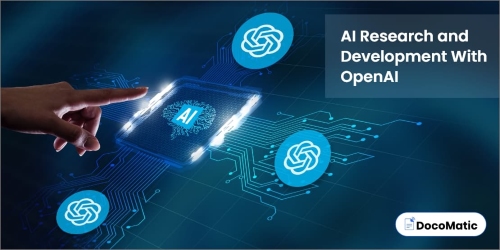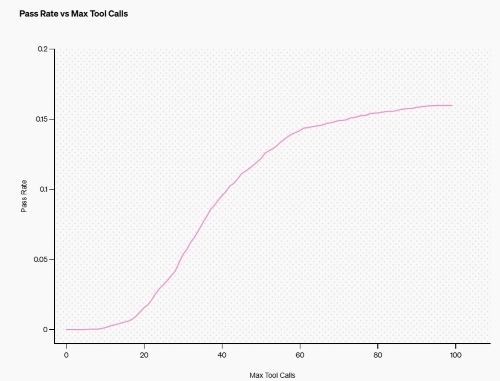Deep Research is a groundbreaking feature in ChatGPT, designed to perform multi-step research on the internet, condensing hours of human work into minutes. It uses advanced reasoning to synthesize information, providing comprehensive reports similar to those created by research analysts.
What is Deep Research?
Deep Research is an agentic capability within ChatGPT that:
- Conducts thorough online research
- Analyzes and synthesizes information from hundreds of sources
- Generates detailed, well-documented reports
It operates using the upcoming OpenAI o3 model, optimized for web browsing and data analysis, capable of interpreting massive amounts of text, images, and PDFs online.
.jpg)
What are the Key Features of Deep Research?
- Agentic Capability: Operates independently to complete research tasks.
- Multi-step Research: Finds, analyzes, and synthesizes online sources.
- Powered by OpenAI o3 Model: Optimized for web browsing and data analysis.
- Reasoning and Analysis: Searches, interprets, and analyzes massive amounts of text, images, and PDFs.
- Documentation and Citation: Provides clear citations and summaries of its processes.
Deep Research vs. GPT-4o: A Comprehensive Comparison
| Aspect | Deep Research | GPT-4o |
| Definition | Manual, in-depth investigation using verified sources. | AI-driven instant responses based on vast datasets. |
| Purpose | In-depth research tasks | Real-time conversations |
| Speed | Slow – Requires time for data collection, analysis, and validation. | Superfast – Generates structured responses in seconds. |
| Accuracy | Very High – Based on peer-reviewed studies, fact-checking, and cross-referencing. | High – Generally reliable but depends on training data and real-time updates. |
| Depth of Analysis | Extensive – Covers nuances, historical context, and expert viewpoints. | Good – Provides summaries and insights but may lack deep contextual awareness. |
| Source Reliability | Credible – Uses academic journals, government reports, and expert opinions. | Variable – Trained on diverse datasets; real-time sources may lack credibility checks. |
| Fact-Checking | Manual & Rigorous – Requires verification from multiple sources. | Automated – Can fact-check via web searches but not always foolproof. |
| Bias & Objectivity | Balanced – This can be minimized by consulting diverse perspectives. | Potential Bias – Inherits biases from training data and internet sources. |
| Best For | Academic research, policymaking, investigative journalism, Comprehensive, verified analysis | Quick insights, brainstorming, general knowledge, summaries, Multimodal, quick answers |
| Interactivity | Low – Requires self-driven search and synthesis. | High – Engages dynamically, and explains concepts interactively. |
| Creativity & Innovation | Human-Led – Relies on expertise, intuition, and analytical reasoning. | AI-Assisted – Generates ideas but lacks human intuition. |
| Cost & Accessibility | Expensive – Requires subscriptions, expert consultations, or institutional access. | Affordable – The free/basic version is available, and the premium for advanced features. |
| Ease of Use | Complex – Requires research skills and expertise. | User-Friendly – Simple, intuitive, and accessible to all. |
Final Verdict:
Use Deep Research for high-stakes reports, academic studies, and policy decisions.
Use GPT-4o for quick insights, idea generation, and summarization—but always verify for accuracy!
Why Deep Research, not other Chat GPTs?
Key Benefits:
- Efficiency: Completes research tasks in 5 to 30 minutes
- Reliability: Provides fully documented outputs with citations
- Versatility: Useful for professionals in finance, science, policy, and engineering, as well as for personalized consumer research
Applications:
- Competitive analysis
- Policy briefs
- Market research
- Personalized product recommendations

Source: Canva
What would be the Purpose and Benefits of Deep Research?
Purpose and Benefits of Deep Research would be:
| Target Users | Benefits |
| Knowledge Workers | Thorough, precise, and reliable research |
| Shoppers | Personalized recommendations |
| Research Analysts | Comprehensive reports with clear citations |
- Knowledge Synthesis: Facilitates the creation of new knowledge by synthesizing existing data.
- Time-saving: Expedited complex, time-intensive web research.
How It Works?
Step-by-Step Process:
- Initiate a Query: Select 'Deep Research' in ChatGPT and enter your query.
- Information Gathering: The model searches and compiles information from multiple sources.
- Analysis & Synthesis: Insights are consolidated into a comprehensive report.
- Report Delivery: A detailed report, complete with citations and summaries, is provided.
Example Use Cases:
- Evaluating streaming platforms
- Detailed reports on market trends
- Recommendations for high-value purchases
Deep Research is an advanced AI system trained using end-to-end reinforcement learning on complex browsing and reasoning tasks across various domains.
It excels at:
- Planning and executing multi-step queries to find relevant data.
- Backtracking and adapting to real-time information when needed.
- Browsing user-uploaded files for extracting and analyzing content.
- Generating and embedding visual data, such as graphs and images.
- Citing specific sources for enhanced credibility.

Source: docomatic.ai
Key Capabilities
Capabilities of Deep Research in Detailed:
| Feature | Description |
| Multi-Step Reasoning | Finds data through planned search strategies. |
| Real-Time Adaptability | Adjusts searches based on changing inputs. |
| User File Browsing | Analyzes and extracts relevant information from files. |
| Graph & Image Generation | Creates and embeds visual representations. |
| Source Citation | References specific sentences for credibility. |
As a result of its rigorous training, Deep Research achieves state-of-the-art performance in various public evaluations of real-world problems.
Getting Started
- Access: Available to Pro users now, expanding soon to Plus and Team plans.
- Interface: Easy to use with a sidebar tracking progress and sources.
- Notifications: Alerts you when the report is ready.
Deep Research represents a significant step towards our vision of AGI, capable of producing new knowledge by synthesizing existing information.
Humanity’s Last Exam
Deep Research was recently tested on Humanity’s Last Exam, an expert-level assessment spanning 100+ subjects, including linguistics, rocket science, ecology, and classics. It achieved a record 26.6% accuracy, significantly outperforming other AI models.
Performance Comparison
| Model | Accuracy (%) |
| GPT-4o | 3.3 |
| Grok-2 | 3.8 |
| Claude 3.5 Sonnet | 4.3 |
| Gemini Thinking | 6.2 |
| OpenAI o1 | 9.1 |
| DeepSeek-R1* | 9.4 |
| OpenAI o3-mini (medium)* | 10.5 |
| OpenAI o3-mini (high)* | 13.0 |
| OpenAI Deep Research | 26.6 |
Note: Some models were evaluated on text-only subsets, while Deep Research used browsing and Python tools.
Deep Research showcased a human-like ability to seek specialized information, leading to substantial improvements in chemistry, humanities, social sciences, and mathematics.
GAIA Benchmark Performance
Deep Research set a new state-of-the-art (SOTA) score on GAIA(General AI Assistants), a public benchmark for evaluating AI on real-world reasoning and multi-modal tasks.
GAIA Scores
| Model | Level 1 | Level 2 | Level 3 | Average |
| Previous SOTA | 67.92 | 67.44 | 42.31 | 63.64 |
| Deep Research (pass@1) | 74.29 | 69.06 | 47.6 | 67.36 |
| Deep Research (cons@64) | 78.66 | 73.21 | 58.03 | 72.57 |
These scores reflect Deep Research’s ability to handle increasing difficulty levels with advanced reasoning, web browsing, and tool-use proficiency.
Expert-Level Tasks
In internal evaluations, domain experts found Deep Research automated hours of complex, manual research, significantly reducing effort on high-difficulty tasks.

Source:openai
What are the Limitations od Deep Research?
Despite its impressive capabilities, Deep Research has some challenges:
- Fact Hallucinations: These may generate incorrect facts, though at a lower rate than other AI models.
- Credibility Assessment: Sometimes struggles to distinguish authoritative sources from unreliable information.
- Confidence Calibration: Fails to convey uncertainty accurately.
- Formatting Issues: Minor errors in reports and citations at launch.
- Processing Delays: Some tasks may take longer to execute.
Future improvements will focus on refining accuracy, reliability, and efficiency through iterative updates.
Access & Availability
Currently, Deep Research is highly compute-intensive. Its availability follows a phased rollout:
Access Tiers
| User Category | Availability |
| Pro Users | Up to 100 queries/month (Initial Release) |
| Plus & Team Users | Next phase of rollout |
| Enterprise Users | Coming soon |
| Users in the UK, Switzerland, EEA | Access under development |
A faster, cost-effective version with higher query limits will soon be released for all paid users.
What could be the Future Developments regarding Deep Research?
Short-Term Plans
- Mobile & Desktop Expansion: Rolling out Deep Research on ChatGPT’s mobile and desktop apps.
- Integration with Specialized Data Sources: Expanding beyond open web browsing to subscription-based or internal resources.
Long-Term Vision
- Asynchronous Research & Execution: Combining Deep Research with Operator, another AI tool, for real-world task execution.
- Enhanced AI Agent Capabilities: Enabling ChatGPT to perform increasingly complex tasks autonomously.
Conclusion
Deep Research represents a major advancement in AI-powered browsing, reasoning, and research. While still evolving, its potential to automate expert-level investigations, provide high-quality responses, and improve decision-making is undeniable. Future improvements will further enhance accuracy, reliability, and efficiency, making it an invaluable tool for researchers, professionals, and enterprises alike.
Comments
All Comments (0)
Join the conversation